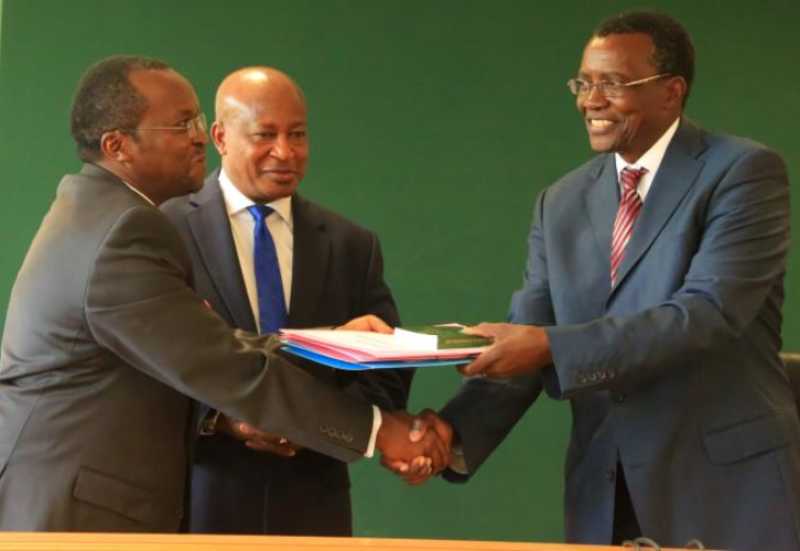
In this November 18, 2018 picture Chief justice David Maraga (right) hands over the court of appeal to the new presiding judge Daniel Musinga (left) at Kisumu Law Courts. Looking on is the president of the Court of Appeal Kihara Kariuki, now the Attorney-General. Justice Musinga was today (May 24, 2021) elected as the President of the Court of Appeal.[Archive Standard]
On May 21, 2021, as Chief Justice Martha Koome and Supreme Court judge William Ouko took their oaths of office, Justice Roselyne Nambuye retired from the Court of Appeal. She had reached 70 years.